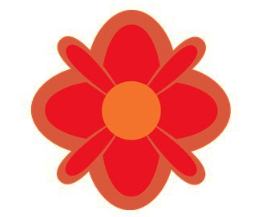Pastimes Aren't Just for Passing the Time: How to Find a Life-Giving Hobby, by Rachel Moore, MFTI
What do you do? Not for work. Maybe not even just for fun. What do you do that helps give meaning to your life? What feeds your soul? If you find you’re not doing those types things, what is holding you back?
A lot has been said about hobbies and how they can help relieve stress and anxiety. A study at the School of Medicine at Temple University in Philadelphia found engaging in hobbies stimulates parts of the brain that produce feelings of pleasure, happiness, and satisfaction. Many of us have experienced this effect, yet sometimes we don’t prioritize leisure time. The American culture prides itself on hard work, which is fine. But if we don’t take care of our basic need for play, our mental and emotional health can suffer. Even a few minutes a day is helpful; hobbies aren’t limited to the elite.
Here are a few tips to find activities that will help increase your sense of joy and wonder:
1. Make a list of things you could do for hours, regardless of physical limitation. List things that mentally and emotionally strengthen you, not deplete your energy (although you may feel tired in a good way). Singing, Zumba, and playing the piano fall into this category for me. Other people enjoy knitting, gardening, or woodworking. If you don’t know what you like, think back to when you were a small child. What fascinated you to the point where you couldn’t sleep because you wanted to keep doing that thing? You may find some hints when you remember back to your childhood interests.
2. Try something new. When you learn a new skill that isn’t already “your thing,” it can be liberating. For example, maybe you’ve identified yourself as a writer ever since you first picked up a pencil and scrawled your name at age 3 or 4. Everyone else sees you as a writer, too, which can create pressure and expectations. If you decide to try something new like learning the violin, you may be pleasantly surprised to find the creative baggage that accompanied the label “writer” doesn’t come along with “budding violinist.”
3. Create an artificial reminder to engage in your hobby. You can use a timer, a stopwatch, or your phone. If you work from home, you may find it’s easy to get absorbed in work and forget about opportunities to shift your focus and take a quick break. I have a device that reminds me to stand up and walk around a bit every hour. When I’m doing work on my computer at home, sometimes I go out to my little garden and putter for five minutes. I have never considered myself a gardener, yet putting my hands in soil and water shifts me out of the digital world and back into nature, if only momentarily. I feel refreshed and refocused when I return to my work.
4. Set up a hobby fund. If you have a budget set up for food and shelter, throw a few bucks into a hobby fund, as well. When you find something you want to do, check your hobby budget to see if the money is there. If you haven’t saved enough yet, you can keep contributing and anticipate the day when you’ll reach your goal. Creating a “fun fund” can give you permission to indulge in something you love because your other basic needs have been covered. And you may find many hobbies don’t cost as much as you think.
5. Don’t give in to “hobby anxiety.” Maybe you don’t like hobbies or you feel too busy to engage in them. That’s OK. If you feel pressured when you think about getting a hobby, you don’t have to get a hobby. We talk a lot about having a “balanced life” in America. But the scale looks different for everyone. If work is something that truly brings you pleasure, do it. You don’t have to be one way in life, and your interests may change over time. The important thing is to be mindful of your energy level and choose what works best to keep you mentally and emotionally healthy.
Life is short, as we know. Sometimes it’s good to remember that. A year from now, how would you like to look back on how you spent your time? What’s one thing you can do right now that puts a spark in your day? Do that thing. Don’t worry about what anyone else thinks. Perhaps others will be inspired by your example and add some fun to their lives, as well.
Rachel Moore, MFTI, specializes in helping writers, artists, and musicians overcome anxiety. She is a pre-licensed therapist at the Therapeutic Center for Anxiety and Trauma in Bankers Hill, San Diego. Rachel is in training for EMDR and is pleased to now offer this therapy modality to her clients. She also will be starting a new drop-in group, Coffee & Creativity, in August. This group is open to everyone. For more information, please visit: http://www.anxietytraumatherapy.com/services/. You may also contact Rachel directly if you have any questions about her group or individual services: rachel@anxietytraumatherapy.com or 619-272-6858 x706.
Sources: nytimes.com

